Send us a Message
- Destinations
- Tours
- By Destinations
- By Themes
- Suggested Combination
- Duration
- About Us
- Reviews
Bali overview: The legislation
Bali, as part of Indonesia, operates under the country’s national legal framework, which is influenced by both civil law traditions and customary (adat) practices. Indonesia’s legislation covers areas such as commerce, land use, foreign investment, and environmental protection, all of which directly affect Bali’s development as a global tourism hub. Specific to Bali, land ownership and zoning laws play a crucial role due to the island’s reliance on tourism, agriculture, and cultural preservation. While foreign investors cannot directly own land, long-term lease arrangements are common. Bali’s governance also integrates aspects of traditional Balinese customs and religious practices, particularly in community decision-making, creating a unique blend of national law and local data. Ongoing regulatory efforts focus on balancing economic growth, environmental sustainability, and cultural heritage preservation in line with Indonesia’s broader modernization agenda.
Bali overview:
Denpasar, the provincial capital of Bali, is the island’s administrative and commercial hub, with growing urban infrastructure, bustling markets, and cultural landmarks. To the south lies Kuta, a world-famous tourist destination known for its beaches, nightlife, and vibrant shopping streets. Seminyak and Canggu have emerged as lifestyle and leisure centers, attracting international visitors with luxury resorts, beach clubs, and digital nomad communities. Ubud, situated inland, is recognized as the cultural and artistic heart of Bali, renowned for its traditional dance, crafts, yoga retreats, and surrounding rice terraces. Other notable areas include Sanur, offering a more relaxed coastal atmosphere, and the port town of Gilimanuk in the west, connecting Bali to Java. Together, these urban and cultural centers shape Bali’s unique identity as both a global tourist magnet and a place deeply rooted in tradition.
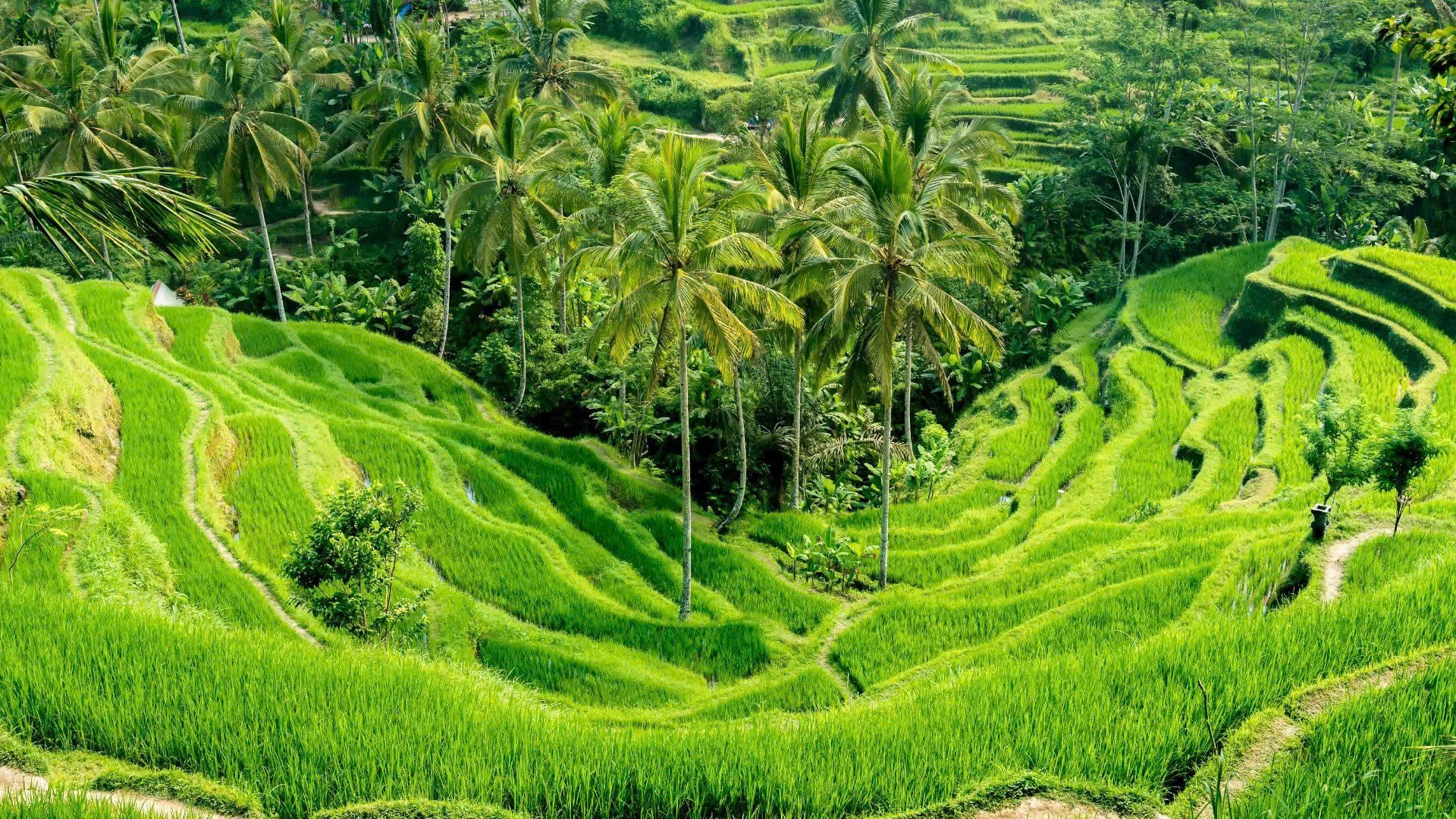
Bali is located in the Indonesian archipelago, positioned between Java to the west and Lombok to the east. Covering an area of around 5,780 square kilometers, the island features diverse landscapes, including volcanic mountains such as Mount Agung and Mount Batur, fertile rice terraces, lush forests, and a stunning coastline with both white- and black-sand beaches. Bali’s climate is tropical, with two primary seasons: the rainy season from November to March, marked by heavy showers and high humidity, and the dry season from April to October, offering sunny days and cooler evenings. This climate supports year-round travel, though the dry months are particularly popular among visitors seeking outdoor activities, festivals, and beach holidays.
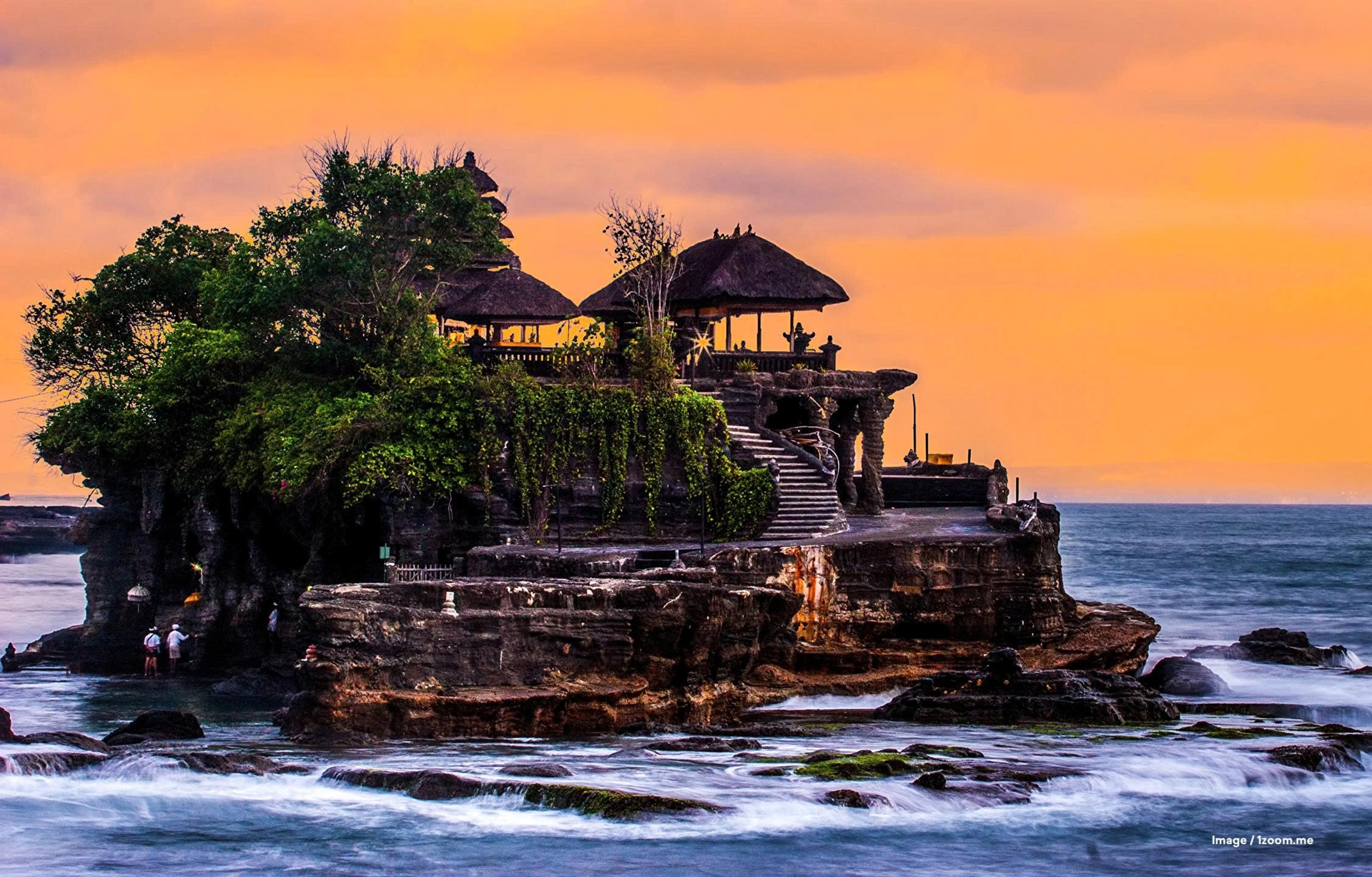
Northern Bali
Northern Bali is characterized by rugged highlands, black-sand beaches, and a quieter, less commercial atmosphere. Key destinations include Lovina, known for dolphin watching and tranquil coastal life, and the volcanic highlands around Munduk, offering waterfalls, coffee plantations, and hiking opportunities. The climate here is generally cooler due to the elevation, making it suitable for nature-based tourism.
Central Bali
Central Bali is the island’s cultural and spiritual core, with Ubud as its focal point. Surrounded by terraced rice paddies, temples, and artisan villages, the region represents Bali’s artistic heritage. The highland climate provides a refreshing contrast to the coastal heat, especially from June to September. Visitors are drawn to its traditional ceremonies, yoga and wellness retreats, and proximity to sites like the Tegallalang rice terraces and Goa Gajah temple.
Southern Bali
Southern Bali is the island’s most developed and visited region, featuring world-renowned beaches, luxury resorts, and entertainment districts. Areas such as Kuta, Seminyak, Canggu, and Nusa Dua cater to diverse traveler preferences, from surfing and nightlife to high-end leisure. The Bukit Peninsula, home to Uluwatu Temple and dramatic cliffs, is also a highlight. The climate here is typically hot and sunny, with the dry season (April–October) offering the best conditions for beach tourism.

Vietnam is a country full of history, culture, and natural beauty, offering unforgettable experiences for every type of traveler. From bustling cities and ancient temples to serene countryside and pristine beaches, there is something for everyone. With careful planning, attention to local customs, and consideration for dietary or religious needs, Israeli travelers can enjoy a safe, enriching, and memorable journey.
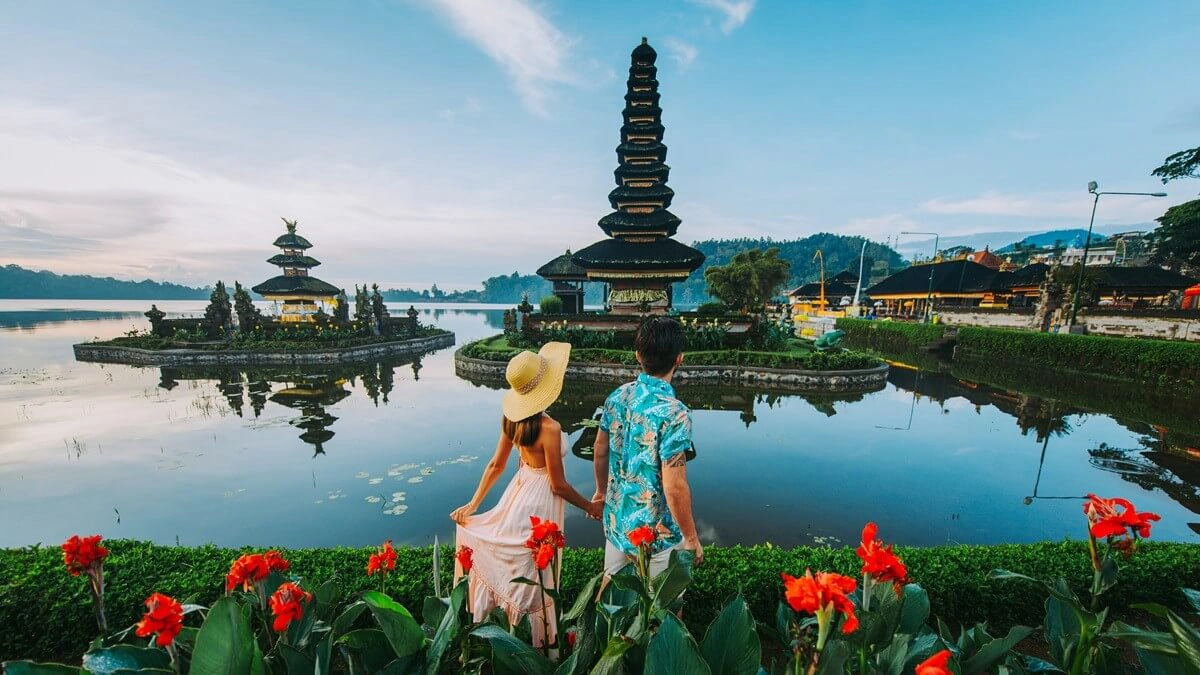
To enter Bali, travelers need a passport valid for 6 months; many nationalities get 30 days visa-free, while longer stays require a Visa on Arrival or e-visa. The island has a tropical climate with a dry season (Apr–Oct) ideal for beaches and festivals, and a wet season (Nov–Mar) with lush green landscapes. Cash in Indonesian Rupiah is essential for small expenses, though cards are accepted in larger venues, and transport mainly relies on taxis, ride-hailing apps, scooters, or private drivers. Visitors should respect local customs—dress modestly at temples, remove shoes in sacred spaces, and use the right hand when giving or receiving items.

Balinese cuisine is a vibrant reflection of the island’s culture, shaped by its Hindu heritage, fertile volcanic soils, and abundant spices. Meals are a harmonious balance of flavors spicy, savory, sweet, and aromatic—brought together through fresh herbs, coconut, peanuts, and chili-based spice pastes known as bumbu. Rice is the centerpiece of most meals, complemented by grilled meats, seafood, and an array of vegetable dishes. Many recipes are deeply rooted in ceremonial traditions, often served during temple festivals and family gatherings, making Balinese food not only a culinary delight but also a cultural journey.
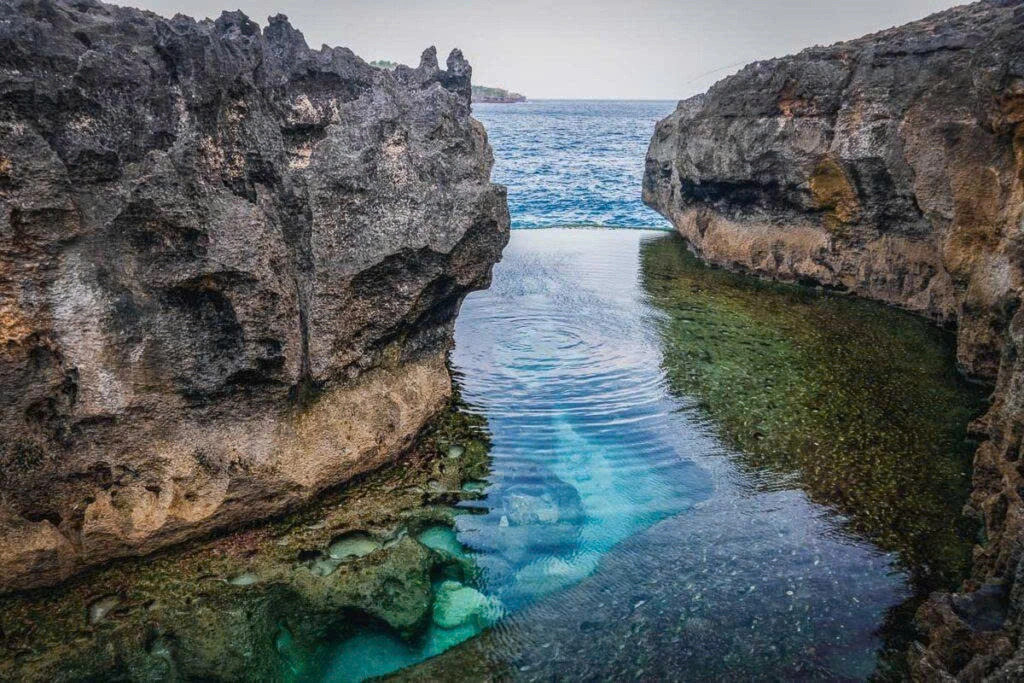
Nusa Penida is a stunning island off Bali’s southeast coast, famed for its rugged cliffs, crystal-clear waters, and dramatic landscapes. Highlights include Kelingking Beach with its dinosaur-shaped headland, Angel’s Billabong, and Broken Beach. Popular for snorkeling and diving, the island offers encounters with manta rays and vibrant coral reefs, making it a paradise for adventure and nature lovers.
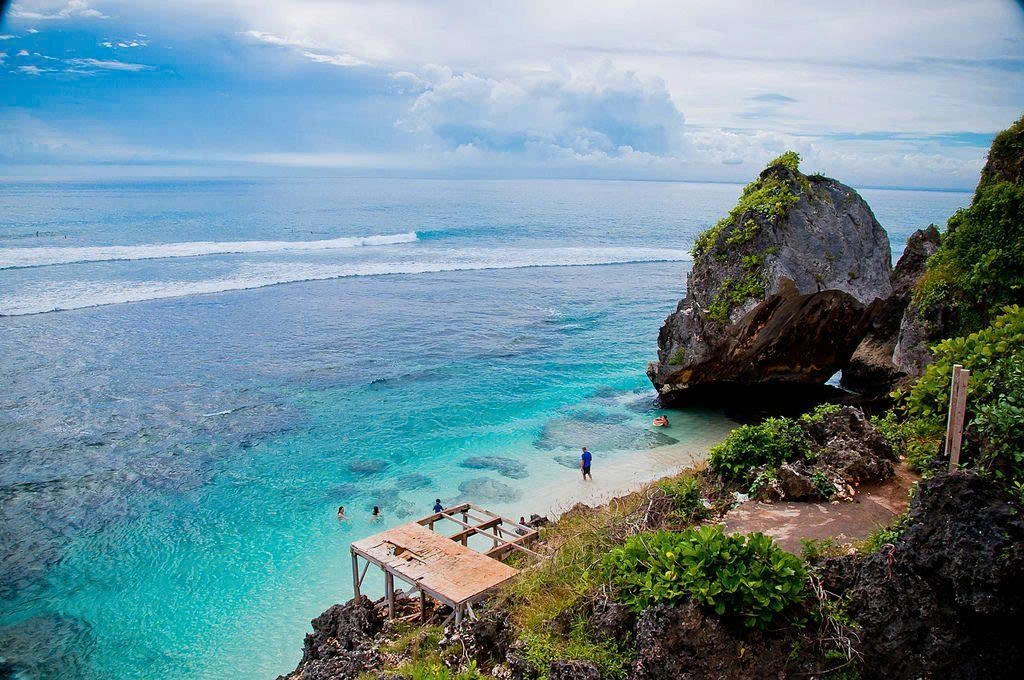
Uluwatu is renowned for its dramatic sea cliffs, world-class surf breaks, and breathtaking ocean views. At its heart lies the iconic Uluwatu Temple, perched high above the waves and famous for sunset Kecak dance performances. With luxury resorts, hidden beaches, and a relaxed coastal vibe, Uluwatu is a perfect blend of culture, adventure, and natural beauty.
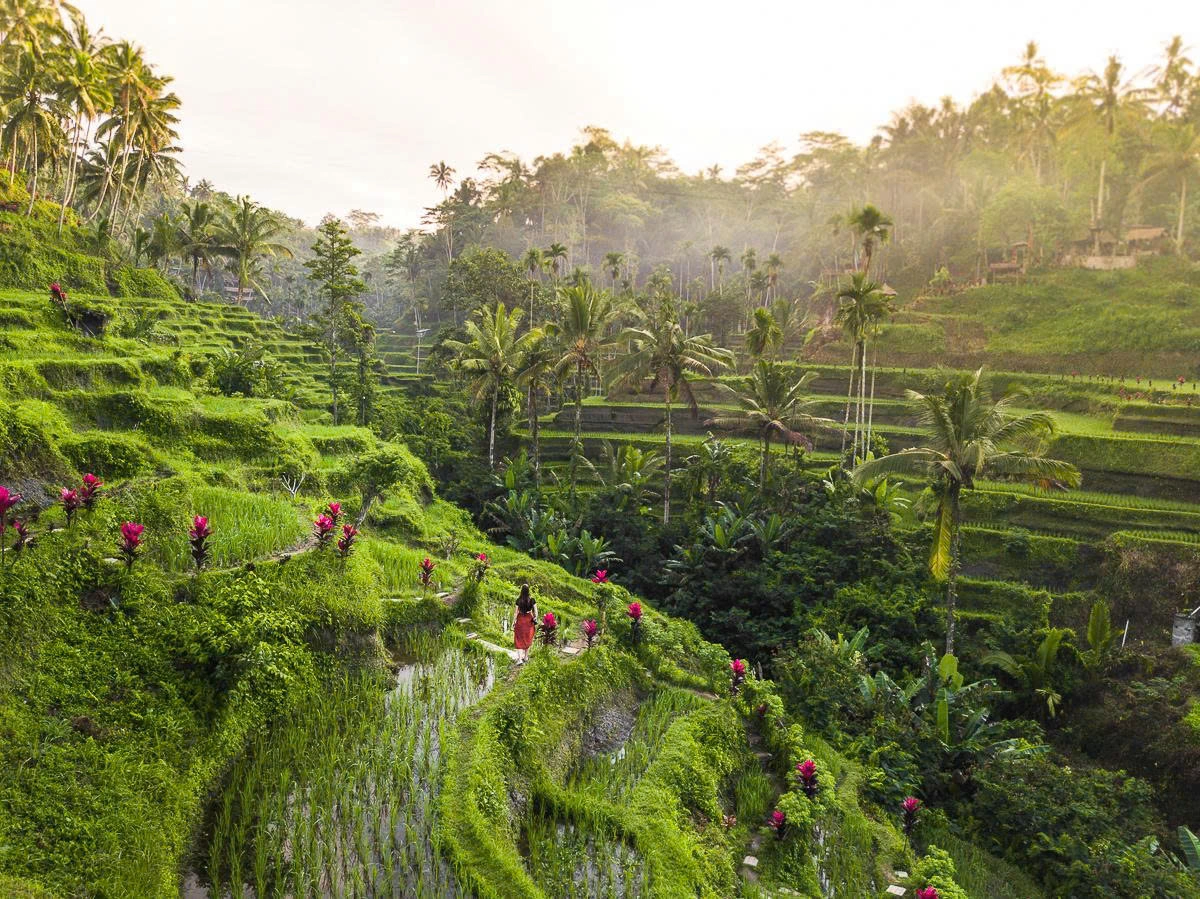
Ubud is the cultural and spiritual heart of Bali, surrounded by rice terraces, lush forests, and traditional villages. Known for its art, dance, and handicrafts, it’s also a hub for yoga, wellness, and spiritual retreats. With its temples, galleries, and serene landscapes, Ubud offers a deeper connection to Balinese heritage and nature.
Preparing for your upcoming trip to Asia?
Let us know what we can arrange for you!